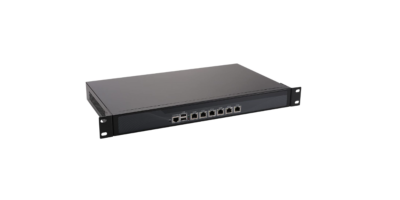In recent years, the healthcare industry has undergone a revolutionary transformation fueled by advancements in technology. One of the most significant shifts has been towards a patient-centric approach, placing the individual at the core of healthcare delivery. This paradigm shift has been made possible by a plethora of technological innovations that not only enhance the quality of care but also empower patients in managing their health. In this blog post, we will explore the profound impact of technology on patient-centric care.
The Evolving Landscape: Impact of Technology in Patient-Centric Care
1. Electronic Health Records (EHRs): The Foundation of Patient-Centric Care
Electronic Health Records (EHRs) have replaced traditional paper records, enabling healthcare providers to access a patient’s comprehensive medical history at the click of a button. This not only streamlines the diagnosis and treatment process but also fosters better communication among healthcare professionals. Patients benefit from the seamless transfer of information between different healthcare providers, ensuring continuity of care and reducing the risk of medical errors.
2. Telemedicine: Breaking Geographical Barriers
Telemedicine has emerged as a game-changer in patient-centric care. With the power of video conferencing and remote monitoring, patients can now consult with healthcare professionals without the need for a physical visit. This is particularly impactful for individuals in remote areas or those with mobility issues. Telemedicine not only increases accessibility but also promotes proactive healthcare by enabling regular check-ins and monitoring of chronic conditions.
3. Wearable Technology: Empowering Patients in Real-Time
The rise of wearable devices, such as smartwatches and fitness trackers, has empowered individuals to take an active role in their health. These devices monitor vital signs, track physical activity, and even detect irregularities, providing users with real-time health data. For patients with chronic conditions, wearable technology offers a continuous, unobtrusive way to manage their health, fostering a sense of control and awareness.
4. Health Apps: Customized Healthcare at Your Fingertips
The proliferation of health apps has put personalized healthcare within reach. From medication reminders to mental health support, these applications cater to a wide range of healthcare needs. Patients can access information, track their symptoms, and even connect with support communities, promoting a holistic approach to health management. The ease of use and accessibility of these apps make them valuable tools in fostering patient engagement.
5. Artificial Intelligence (AI) in Diagnostics and Treatment
Artificial Intelligence is transforming diagnostics and treatment plans by analyzing vast datasets to identify patterns and correlations that may elude human practitioners. AI algorithms can assist in early detection of diseases, recommend personalized treatment plans, and predict patient outcomes. This not only enhances the efficiency of healthcare delivery but also ensures that treatments are tailored to the specific needs of individual patients.
6. Remote Patient Monitoring: Proactive Healthcare Management
Remote Patient Monitoring (RPM) allows healthcare providers to keep a constant eye on patients’ vital signs and symptoms from a distance. This is particularly beneficial for individuals with chronic conditions who require continuous monitoring. RPM not only reduces the need for frequent hospital visits but also enables early intervention in case of any deviations from the norm, leading to better outcomes and improved quality of life for patients.
7. Blockchain: Enhancing Data Security and Integrity
Ensuring the security and integrity of patient data is paramount in patient-centric care. Blockchain technology, with its decentralized and secure nature, is emerging as a solution to safeguard electronic health records. By providing a tamper-resistant and transparent system, blockchain enhances trust in the healthcare system and ensures that patients have control over who accesses their sensitive information.
8. Patient Education and Empowerment
Technology has democratized access to health information, empowering patients to become informed decision-makers in their healthcare journey. Online resources, educational videos, and interactive platforms provide patients with the knowledge they need to understand their conditions and actively participate in decisions about their care. This shift towards patient education fosters a collaborative relationship between healthcare providers and patients.
9. Enhanced Communication: Bridging Gaps in Healthcare
Communication is at the heart of patient-centric care, and technology plays a pivotal role in improving the flow of information. Secure messaging systems, patient portals, and video consultations enable efficient communication between patients and healthcare providers. This not only improves the accessibility of healthcare services but also strengthens the doctor-patient relationship, leading to better overall outcomes.
10. Big Data Analytics: Driving Informed Decision-Making
The healthcare industry generates massive amounts of data, and leveraging this data through Big Data analytics can uncover valuable insights. From population health management to predictive analytics, Big Data enables healthcare providers to make informed decisions that improve patient outcomes. This data-driven approach is instrumental in shaping personalized treatment plans and preventive strategies.
Conclusion
The impact of technology on patient-centric care is profound, touching every aspect of healthcare delivery. From improving access to information and fostering proactive health management to enhancing diagnostics and treatment, technology is driving a paradigm shift towards a more patient-centered, collaborative, and efficient healthcare system. As we continue to embrace technological innovations, the future holds the promise of even greater advancements, ultimately placing the power of healthcare in the hands of the individuals it serves.
If you need any help in healthcare technology, contact us, We provide healthcare IT services in healthcare to help healthcare providers harness the power of technology for patient-centric care. Let us work together towards a healthier, more connected future. Visit us online or email at info@medicalitg.com or call us at (877) 220-8774 to learn more about our services.










